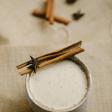
A recent preprint drawing from the work of the UCSF BOOST study examined how symptoms and biometric changes following COVID-19 vaccination may be predictive of the production of neutralizing antibodies, critical for protection against COVID-19.
Ethan Dutcher, MD, PhD shared the purpose of the study: "By May of this year, six months after the latest booster vaccine was recommended and made available, less than a quarter of Americans had received it. One of the major reasons people reported for this was a belief that they were well-protected because of previous vaccinations, or having had COVID. However, protection wanes over time as antibody levels decrease and the virus continues to mutate. These factors may be responsible for the recent spike in hospitalizations. The second major reason for not receiving the booster was a worry about the side effects of vaccination. However, side effects may actually be a sign that the vaccine is working well."
 In the BOOST Study, the researchers measured symptoms, as well as changes in temperature and heart rate after vaccination, then looked at their association with a certain kind of antibody, known as neutralizing antibodies. Study findings show that people who reported experiencing chills, tiredness, headache, or feeling unwell in general had higher neutralizing antibodies, both 1 month and 6 months after vaccination. It also showed that the higher people’s temperature and heart rate increased after vaccination, the better. The researchers found that the relationship between temperature increase and neutralizing antibodies was even stronger at 6 months after vaccination than at 1 month. So, if you feel sick next time you get a vaccination, you might feel better knowing the symptoms are a good sign it is working well!
In the BOOST Study, the researchers measured symptoms, as well as changes in temperature and heart rate after vaccination, then looked at their association with a certain kind of antibody, known as neutralizing antibodies. Study findings show that people who reported experiencing chills, tiredness, headache, or feeling unwell in general had higher neutralizing antibodies, both 1 month and 6 months after vaccination. It also showed that the higher people’s temperature and heart rate increased after vaccination, the better. The researchers found that the relationship between temperature increase and neutralizing antibodies was even stronger at 6 months after vaccination than at 1 month. So, if you feel sick next time you get a vaccination, you might feel better knowing the symptoms are a good sign it is working well!
For more, read the New York Times article on the study, "Feeling Terrible After Your COVID Shot? Then It's Probably Working."
Learn more about the UCSF BOOST Study.
See Ethan Dutcher, MD, PhD's UCSF profile here.



